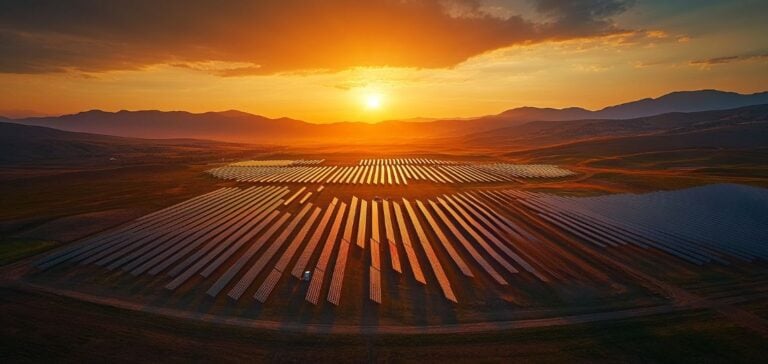China Energy Engineering Corporation (CEEC) signed a photovoltaic module supply contract of 1.25 gigawatts (GW) with JA Solar as part of the second phase of the Abydos photovoltaic project in Egypt. This project is part of an energy modernization initiative aimed at integrating storage solutions and reinforcing the stability of the national power grid.
The project spans 20 square kilometers and aims to generate approximately 3,000 gigawatt-hours (GWh) annually, meeting the electricity needs of over 500,000 households. With the integration of a 600-megawatt-hour (MWh) storage system, this infrastructure will enhance the balance between production and consumption while promoting the integration of renewable energy into the grid.
A Strategic Dimension for Egypt
This project aligns with the priorities defined in Egypt’s Vision 2030, which aims to accelerate the energy transition while strengthening the country’s energy autonomy. During the signing ceremony, Egyptian Prime Minister Mostafa Madbouly highlighted the importance of this project in developing the nation’s renewable energy capacities. He also encouraged the companies involved to intensify their efforts in innovation and investment to support energy and economic growth.
The project’s impact extends beyond national borders, potentially serving as a model for other African nations seeking sustainable energy solutions. It also highlights the convergence of national and international interests, with strong involvement from Chinese actors in the region.
Political and Economic Stakes
The Abydos project reflects a political context marked by the growing interconnection of energy markets and the need for developing countries to bolster their energy security. The role of Chinese companies, such as CEEC, illustrates the increasing strategic influence of China in African energy infrastructure.
The economic implications are equally significant: implementing efficient storage systems will not only maximize the effectiveness of photovoltaic installations but also support Egypt’s goals of attracting foreign investment.
This collaboration could influence future strategic choices by African governments and companies regarding financing and the development of similar infrastructure.
A New Phase for the Photovoltaic Market
With an unprecedented combined production and storage capacity in Africa, the second phase of the Abydos project highlights ongoing technological and industrial evolutions in the energy sector. The actors involved, already active in other African projects, demonstrate their ability to tackle major industrial challenges, integrating large-scale production and storage solutions.
This project is also expected to significantly impact the structuring of Africa’s photovoltaic market, particularly in terms of costs, financing, and international collaboration in renewable energy.






















